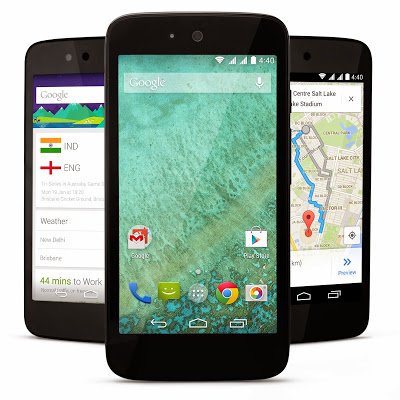
While some 1.75 billion people around the world already use a smartphone, more than 5 billion do not. At an event today in India, Google unveiled its plan to put a smartphone in their hands. Having unveiled Android One back at Google I/O 2014, Google today announced that its new program will kick off in India with three new inexpensive smartphones.
By working closely with phone and silicon chip makers to share reference designs and select components, we’re making it easier for our partners to build phones that are not just great to use, but also affordable. They have lots of processing power, so you can get information quickly. They have high-quality front- and rear-facing cameras. And for all those pictures, along with your apps and videos, Android One phones will have expandable storage. We also added features that people in India will find particularly useful, like dual SIM cards, a replaceable battery and built-in FM radio.
http://youtu.be/X7UPR9z3OV8
As expected, the devices from Micromax, Karbonn and Spice will start as low as INR6,399 (about CA$115). Sporting very similar specifications, they will all be powered by Android 4.4 KitKat and 1.3GHz quad-core MediaTek processors. They will also come with 4.5-inch FWGA (480 854) displays, 3G connectivity, 1GB of RAM, a 5MP rear camera, a 2MP front camera, 4GB of storage and microSD card slots for expansion.
“To help ensure a consistent experience,” Google will update these devices to Android L later this year.
Google also announced that it will provide up to 200MB per month of free downloads from Google Play to Airtel customers for the first six months.
Google also unveiled more information about Android One’s future. It announced new partners which include phone manufacturers Acer, Alcatel Onetouch, ASUS, HTC, Intex, Lava, Lenovo, Panasonic and Xolo as well as chipmaker Qualcomm. The program will also expand to Indonesia, the Philippines and South Asia (Bangladesh, Nepal, Pakistan, and Sri Lanka) by the end of the year. More countries will follow in 2015.
Source : Google
